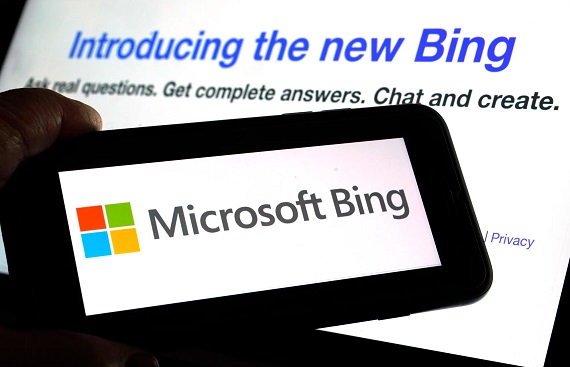Microsoft combines AI-enabled Bing chatbot in mobile & Skype

Microsoft, the American tech firm, is now going to bring the AI-based Bing chatbot to phone and Skype two weeks after the original launch, as per a report.
According to GSM Arena, a tech news outlet, the company will first introduce the feature to the Bing iOS and Android app.
The Bing button in the app would allow users who have been invited to the preview to initiate a conversation with the chatbot. Users can either tap their query or now also just tap the microphone button to speak it out loud.
The homepage of the Microsoft Edge app, which is accessible on iOS and Android, also offers similar capabilities. Users of Skype on all platforms will also have access to Bing's newly discovered intelligence, reported GSM Arena.
Users have the option of having one-on-one conversations with Bing or adding it to group chats so that anyone may tag it and ask a question. They can choose to have the response be in the form of bullet points, text, or a simplified response in over 100 languages.
For those who are unaware, Bing with AI capabilities is Microsoft's response to popular ChatGPT-style intelligent AI chatbots.
It can respond to your inquiries verbosely and intelligently, whether they are straightforward like "how distant is the moon?" or more complex like "create an itinerary for a vacation to Japan."
As per GSM Arena, at the time, the feature is available through invites only and was previously only accessible through the Microsoft Edge desktop browser.
The company is also making its upgraded Bing search engine featuring the technology behind the viral chatbot ChatGPT available on Apple Inc. iPhones and Google Android mobile devices, pressing ahead with the deployment of the system despite early glitches.
In a blog post, Microsoft said it is releasing new versions of its Bing app and Edge browser app for smartphones and tablets Wednesday so users can access the upgraded search engine while on the go.
The company also said it is adding voice to Bing because the ability to speak commands or ask questions out loud rather than type them has been one of the most requested features among early testers of the system. Microsoft also said it plans to integrate the technology into its two-decade-old video-calling app Skype so users can request information and share it with others in group conversations.
